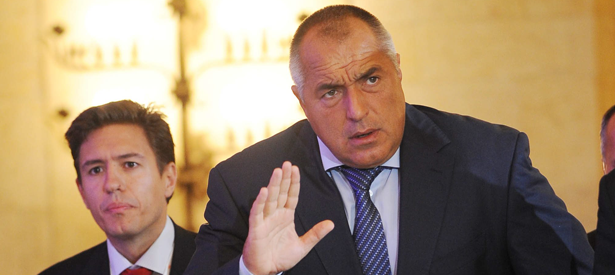Former-Bulgarian PM Boyko Borisov chooses controversial allies after GERB party chair re-election
Former-Bulgarian prime minister, and founder of the right-wing GERB party, Boyko Borisov, has made controversial choices to take the positions of party chair deputies, after being re-elected as GERB chair in a landslide election, which took place, Feb 16.
“Boyko Borisov, former Prime Minister, was re-elected as the chair of the center-right party GERB (Citizens for European Development of Bulgaria),” Sofia news agency novinite.com reported.
Boyko’s first move as party chair was to surround himself with allies. He nominated former-interior minister, Tsvetan T., and long-term political ally as deputy chair. Tsvetan T. is reportedly facing three criminal court cases.
The former-interior minister was implicated by the national prosecutor’s office what has been called the “Bulgarian Watergate” involving the alleged illegal wiretapping of politicians, during his term in office.
The scandal broke in mid-2013, when he was called in for interrogation by the state prosecution.
He is now facing charges to this effect, alongside another case involving the alleged embezzlement of some BGN 50,000 and a separate dubious real-estate acquisition case.
In recent days Tsvetan T. has also been involved in an argument with controversial media mogul Delyan Peevski. The former-interior minister reportedly accused Peevski of having control over the state prosecution. In return Peevski claimed that Tsvetan T. had asked him to ‘shield’ several notorious criminals from media coverage.
“His request – I’ll say it bluntly , was to put an umbrella in my media over several crime bosses,” Peevski told the media, according to Bulgarian internet news service, The Sofia Globe.
Tsvetan T. denies the allegations.
Borisov’s other nominees for GERB deputy chairs are the mayor of Sofia, Yordanka Fandakova, and Brugas’ mayor, Dimitar Nikolov.
Borisov resigned with his whole cabinet in Feb. 2013, following mass demonstrations and public unrest, spurred on by excessive electricity bills after a harsh winter, poverty, and alleged corruption. He vowed to return to politics in Sept. 2013 after public protests flared up once more.
The government came under attack following Prime Minister Plamen Oresharski’s unfortunate nomination of Peevski for the post of national security chief. The nomination caused a wave of protests against a government accused of cronyism and corruption.
Peevski’s nomination was revoked but demonstrations outside Parliament and around the country continued into the new year. Borisov has vowed that he will become Prime Minister once again and lead the country out of this latest crisis of confidence.
The Bulgarian media is now hedging bets on the outcome of the Bulgarian European Parliament Elections, due to be held May 2014. GERB’s future is largely seen as being dependent on the outcome of these elections.
Photo by Jacek Turczyk. Courtesy of Polish news agency PAP/EPA.



